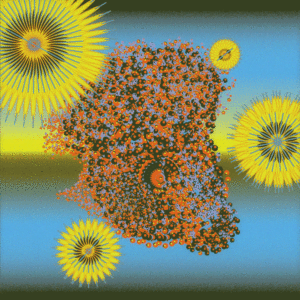Tiny heart repairs
Babies with rare genetic disorders have chance for longer lives

It was once unusual for children with Down syndrome to have surgery to repair heart defects that are associated with the disorder. “Back in 1975, folks would’ve said there’s nothing we can do to help those babies. But now people have proven if you do heart surgery early, patients with Down syndrome can live to adulthood and be active members of their community. The difference it makes for them is tremendous,” says Stanford pediatric cardiologist Thomas Collins, MD.
Collins believes new research might also change attitudes about performing surgery for others who, like Down syndrome babies, are born with a third copy of a chromosome — in this case, babies with trisomy 13 or trisomy 18.
In a recent study published in Pediatrics, Collins and colleagues from the University of Arkansas for Medical Sciences showed that heart surgery can more than double the life spans of babies with trisomy 13, also called Patau syndrome, or trisomy 18, also called Edwards syndrome.
Birth defects and disabilities are far more severe in Patau and Edwards syndrome babies than they are in Down syndrome babies, who can live for many decades. Many Patau and Edwards syndrome babies die within hours or days of birth and most don’t live past a year old.
Their heart conditions are often treated with standard medical care — blood pressure medication, ventilators and intravenous fluids. Surgery is rarely an option. “The thought has been it doesn’t make sense to undertake a major heart surgery if the patient’s death within a few months is a near certainty,” Collins says.
Extending the lives of these babies means they still might not live past the age of 2, but even that improvement gives parents more time with their children and more options for care, Collins points out. It also gives specialists more time to develop treatments for other health issues, such as breathing difficulties.
For their study, researchers used data on nearly 1,600 trisomy 13 and 18 patients from 44 children’s hospitals across the United States between 2004 and 2015. They found that heart surgery increased survival and hospital discharge on average from 33 percent to about 67 percent and that the benefit lasted through two years of follow-up, Collins says.
“Especially for trisomy 18, the number of babies that survive more than doubles after surgery,” he says.
Most infants in the study were admitted at less than a day old, and 51 percent of infants in the study who had congenital heart defects died in the hospital or were discharged to hospice.
Collins says he hopes the research will change how doctors approach treating Patau and Edwards syndrome babies once heart issues are addressed. He says he plans to study more than 3,000 trisomy 13 and 18 patients to determine how their collective health problems fit together, with a goal toward creating a guideline for treatment priorities.
“Surgery gives parents the option to say, ‘We’re going to do everything we can for our baby,’” Collins says. “And, now we’ve shown that heart surgeries could allow parents to take their babies home from the hospital, and have them for two years or beyond, as opposed to two weeks.”

